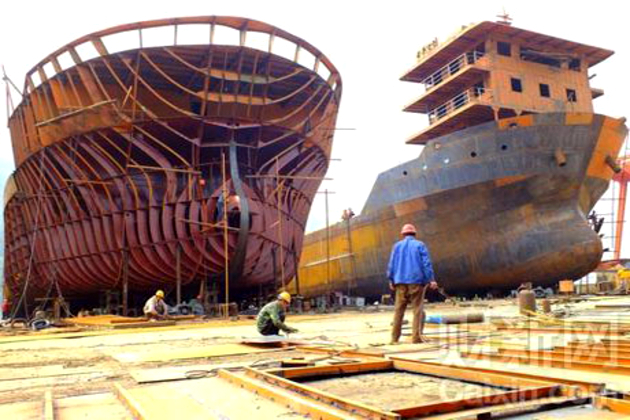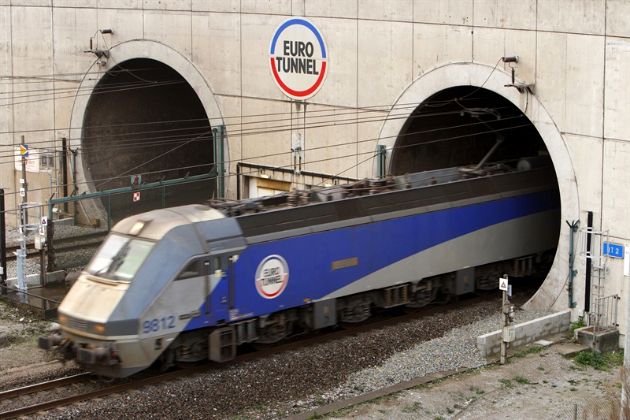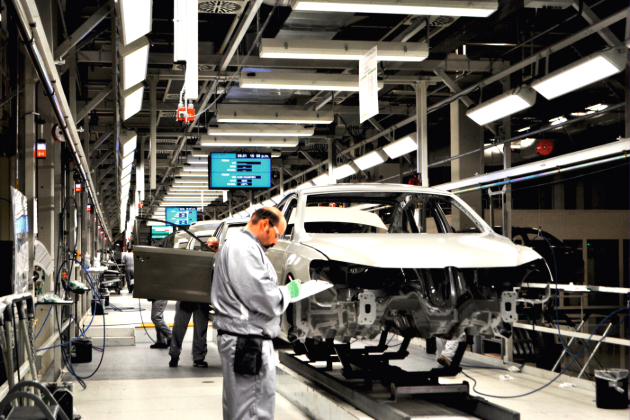How Tensile Testing Allows for Robust Railway Constructions
7Newswire
23 Oct 2023, 08:30 GMT+10

When we travel by train, we might not always think about the strength of the metal tracks and structures that keep our journey safe and smooth. But making sure these metals are strong enough to handle heavy trains, high speeds, and different weather conditions is crucial. Tensile testing is one of the main ways engineers ensure metals used in railways can handle the job.
In a tensile test, a metal sample is stressed until it breaks. By doing this, engineers can understand how strong metal is and behaves under stress. For railways, this information is vital because it helps designers and engineers create structures that won't fail even under extreme conditions.
In this article, we'll explore how engineers prepare metal samples for testing for railway constructions. We'll also explore why tensile testing is so crucial for safe and reliable railway construction.
The Essence of Metal in Railways
Metal is an integral component of railways, from the tracks to the bolts that hold them in place. Railways must support heavy weights and withstand various forces, making metal choice crucial. Whether it's the smooth tracks that guide trains or the intricate mechanisms inside them, the metals used need to be of the highest quality to prevent early wear and catastrophic failures.
When we look at a railway track, we see more than just a piece of metal. It's a carefully chosen material that has undergone several tests to ensure it can withstand harsh weather conditions. To balance strength, flexibility, and cost, different metals or alloys may be used. For instance, steel, known for its high tensile strength and durability, is commonly used in making rails.
But how do engineers ensure that railway metal is up to the task? The answer: by subjecting it to rigorous testing, including tensile testing, which brings us to the necessity of preparing the right metal specimens for accurate testing outcomes.
The Impact of Tensile Testing on Railway Constructions
Tensile testing's vital role in railway construction is fundamental. Engineers can use it to determine whether and how to use materials in real-world railway applications. For instance, the horrific Eschede train disaster in Germany in 1998, where a high-speed train derailed, causing numerous fatalities, was later attributed to metal fatigue at the wheel. This tragic event underscored the criticality of comprehensive metal testing, including tensile tests, to ascertain material reliability and safety in practical applications.
Tensile testing is performed on metals, especially those used in wheels, tracks, and structural supports. This is to evaluate their ability to withstand prolonged stress, repetitive loads, and harsh environmental conditions, all commonplace in railway operations. The derived insights enable engineers to select materials that assure safety and longevity and design components and structures that mitigate the risk of catastrophic failures, as seen in Eschede.
The Impact of Tensile Testing on Durable Railways
In the area of tensile testing, it becomes the key to understanding metal characteristics, especially in terms of their behavior under stress and strain, which is vital in industries like railway construction. Tensile testing involves bending specimens at a controlled rate, observing their response, and evaluating parameters such as yield strength, ultimate tensile strength, and elongation.
Railways are subjected to constant stress, and exposed to various weights, weather conditions, and dynamic forces. Understanding how metals behave under different types of stress allows engineers to predict possible points of failure. This allows engineers to design components that enhance railway safety and longevity.
Railway tracks require integrity and reliability of metal. The tracks must bear the huge loads of trains traveling at high speeds and resist wear, tear, and corrosion caused by constant movement and environmental conditions. For railway tracks, materials are selected based on their tensile strength, ductility, and hardness.
Further, in bridges and supporting structures within the railway network, tensile testing becomes crucial in determining metal resilience and longevity. Knowing how far a metal can be stretched or stressed before it deforms or breaks enables the development of structures that can endure strains without failing, ensuring safe and uninterrupted railway operations.
The Relationship between Tensile Testing and Railway Safety
Reflecting upon tensile testing's significant impact on railway construction, the relationship between metal testing and real-world applications becomes clear and essential. The detailed data derived from testing metal specimens under conditions that mimic real-world stress and strain are not merely numerical values. They determine safety, reliability, and durability in railway operations.
When these statistics translate into practical application, they determine the selection, design, and utilization of materials in every component of a railway system, ensuring that each trip undertaken upon these metals is safely supported by an invisible, yet unbreakable shield of tested strength and reliability. Throughout every railway journey, carefully tested metal tracks are silently protected by tensile testing.
Crafting the Ideal Specimens for Reliable Testing
It is not as simple as pulling apart metal to test its strength. The first step is creating the right specimen, a metal sample representative of larger structures. The specimens for tensile testing, often in the shape of a dog's bone, which are crafted using specialized sample preparation machines, are carefully prepared to ensure accurate, reliable testing results. These samples, whether flat or round, are designed to represent the actual metal materials used in railway construction.
To understand why a specimen breaks or deforms during testing, it must be manufactured precisely. In order to ensure the results are appropriate for larger, real-world applications such as railway tracks and structures, the shape, size, and preparation method must all comply with specific standards.
Correct specimen preparation, using precise CNC machines and methods, is vital for tensile testing and railway construction. Through cutting, machining, and heat treatment, specimens are tested for breakage, revealing key data about metal properties. This knowledge guides engineering decisions, aiding the development of robust railways and associated components, ensuring their reliability and functionality in real-world use cases. Share
Share
 Tweet
Tweet
 Share
Share
 Flip
Flip
 Email
Email
Watch latest videos
Subscribe and Follow
Get a daily dose of California Telegraph news through our daily email, its complimentary and keeps you fully up to date with world and business news as well.
News RELEASES
Publish news of your business, community or sports group, personnel appointments, major event and more by submitting a news release to California Telegraph.
More InformationInternational
SectionTexas, New Mexico report 28 new measles cases in five days
AUSTIN/SANTA FE: Texas/New Mexico have reported 28 new measles cases in the past five days, bringing the total to 256 since the outbreak...
NTSB urges FAA to restrict helicopters near Reagan National Airport
WASHINGTON, D.C.: U.S. Transportation Secretary Sean Duffy announced that helicopters will be permanently banned from flying near Washington...
Virginia governor warns US must fast-track fusion or fall behind China
NEW YORK CITY, New York: The U.S. must accelerate its efforts to develop fusion energy or risk losing its edge to China, Virginia Governor...
China now dominates shipbuilding; US faces security risks
WASHINGTON, D.C.: In the past 20 years, China has become the world's top shipbuilder, producing more than half of all commercial ships....
New York fires 2,000 prison guards after wildcat strike
ALBANY, New York: New York fired over 2,000 prison guards this week for not returning to work after a weeks-long strike that disrupted...
China hits Canadian agriculture with tariffs in trade retaliation
BEIJING, China: China has announced new tariffs on Canadian agricultural and food products in retaliation for Canada's recent duties...
Business
SectionVirgin Group aims to raise $900M for cross-channel rail venture
LONDON, U.K.: Virgin Group is seeking to raise $900 million to fund its plan to launch cross-channel rail services, positioning itself...
Boeing's February deliveries surge to 44, up from 27 last year
SEATTLE, Washington: Boeing saw a significant increase in aircraft deliveries in February, reporting 44 planes delivered compared to...
Southwest ends free checked bags, introduces new fees
DALLAS, Texas: Southwest Airlines will start charging passengers for checked bags, ending a long-standing policy that set it apart...
U.S. stocks rally hard despite drop in consumer sentiment
NEW YORK, New York - U.S. stocks rallied hard on Friday, boosted by strong rises around the world. Investors shrugged off a decline...
Maserati cancels electric MC20 plans over low demand
MILAN, Italy: Maserati has scrapped plans for an electric version of its MC20 sports car, citing low expected demand for the high-performance...
Volkswagen to slash 1,600 jobs at Cariad by year-end
BERLIN, Germany: Volkswagen is set to cut 1,600 jobs at its Cariad software division by the end of the year, affecting nearly 30 percent...













